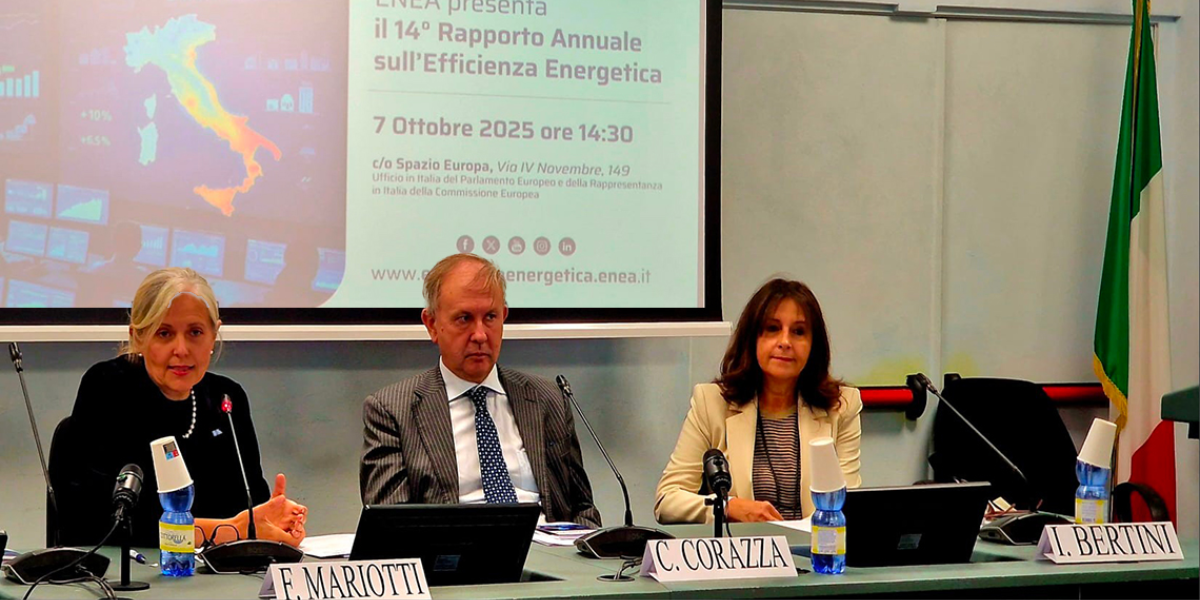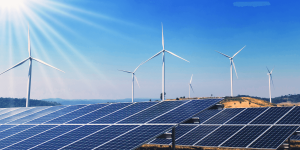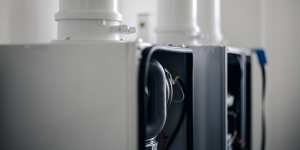Italy to save 4.5 Mtoe in 2024: energy efficiency drives the transition
In 2024, our country reduced energy consumption by 4.5 million tonnes of oil equivalent, reaching 90% of the PNIEC target thanks to incentives, diagnoses and targeted investments.

Image source: media.enea.it
Energy efficiency continues to be a key pillar of the transition to a sustainable energy system. The findings of ENEA's 14th Annual Energy Efficiency Report show how fiscal policies, incentives, and technologies have enabled Italy to significantly reduce its consumption by 2024. In addition to environmental benefits, efficiency generates economic savings, greater energy independence, and incentives for industrial innovation, making a tangible contribution to the path toward the 2030 climate goals.
Energy efficiency as a strategic lever of national policy
According to the 14th Annual Report on Energy Efficiency published by ENEA, 2024 will mark a record result for Italy in terms of energy savings : 4.5 Mtoe, equivalent to the energy consumed in a year by over 4 million homes.
This achievement demonstrates the effectiveness of efficiency policies and the decisive contribution of established tools such as the Ecobonus, Home Bonus, and Superbonus, which generated 2.48 Mtoe of overall savings in the four-year period 2021-2024.
Although down from their 2022 peaks, fiscal measures remain a cornerstone for the redevelopment of the building stock and for containing national energy demand.
These results are complemented by White Certificates , which in 2024 enabled savings of 0.12 Mtoe , bringing the four-year total to 0.716 Mtoe, exceeding the forecasts of the National Integrated Energy and Climate Plan. The Thermal Account , intended for interventions on air conditioning systems and renewable sources , also contributed 0.1 Mtoe in 2024 , while sustainable mobility recorded a 7% increase compared to 2023, reaching 0.43 Mtoe.
Overall, these actions have made it possible to almost entirely cover the intermediate target of the NECP and significantly reduce national energy dependence, confirming efficiency as a structural lever for competitiveness, sustainability, and quality of life.
Energy diagnosis and industrial transition: the challenge of 2025
The contribution of industry and large companies continues to grow. In 2024, 853 energy audits were conducted by 569 obligated entities, resulting in estimated savings of 76.9 ktoe/year.
The average effectiveness of the interventions increased, reaching 0.10 ktoe per audit, a sign of companies' greater awareness of the economic and environmental benefits of more efficient energy use.
However, the ENEA report also highlights some critical issues for 2025. The remodulation of the Superbonus and the end of some extraordinary incentives could slow the pace of new interventions, with a reduction in expected savings (0.127 Mtoe in 2024 versus 0.438 in 2023).
To maintain the positive trend, it will be necessary to strengthen long-term policies , simplify administrative procedures, and enhance technical training for businesses and public administrations.
According to ENEA, the priority for the coming years is to transform efficiency into a widespread and permanent practice , extending the culture of energy saving from construction projects to production systems. Only in this way will Italy be able to consolidate the results achieved and achieve the decarbonization targets set for 2030.
Related Focus







